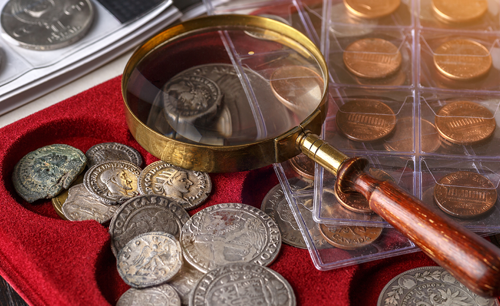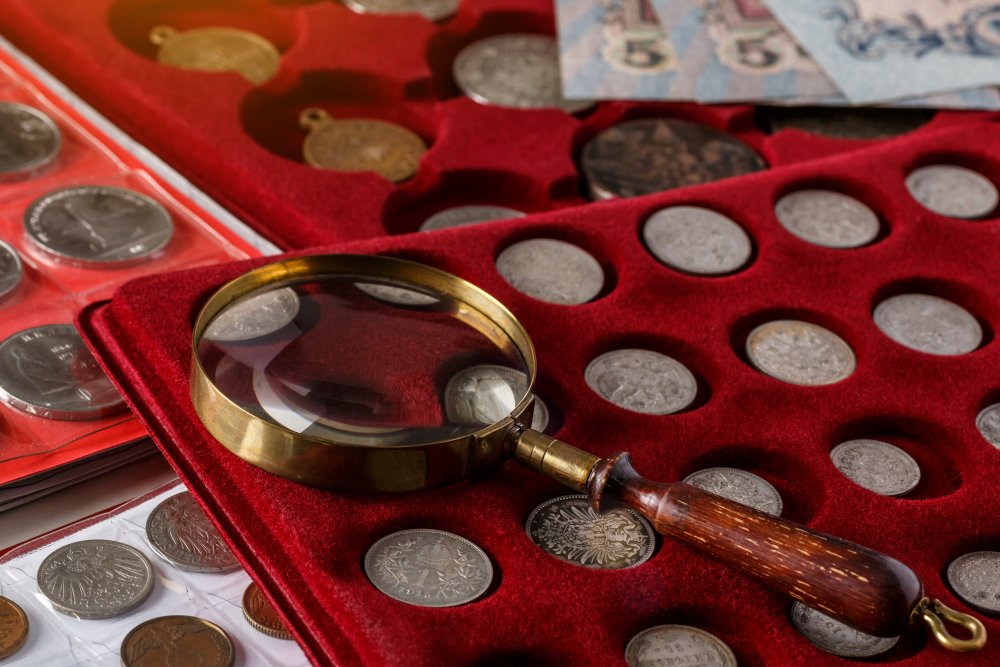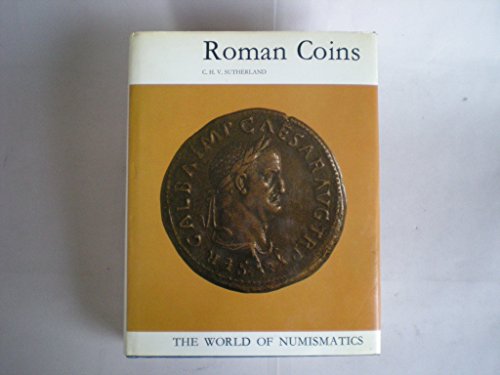A well-organized approach is suggested to conduct this research. Here's a systematic way to conduct this research. JSTOR and other databases and academic repositories are also able to provide access to proceedings and articles from conferences.
Define Research Focus: Specify your research objectives. Are you keen to learn more about the global numismatic associations' activities, history, regional cooperations conference and publications? Or are you looking for specific numismatic topic discussed within the associations? Define your goals in order to guide your investigation.
Search Strategy: Use keywords like "numismatic associations", "global numismatics" or "regional numismatic societies," depending on the context. Also, you can add the names of specific groups or regions. You can filter results with advanced search features. This could include filtering by date, type of documents like conference papers and newsletters from associations, as well as by geographic coverage.
Access to data collection: Information on the history, mission, membership publications, as well as the activities of global and region societies for numismatics. Find out more about past and upcoming conferences workshops, conferences collaboration research initiatives as well as other initiatives. Browse databases with information on the association's members, its leadership, and contact details.
Analyze: Examine your data to gain more understanding of the global and regional the role of numismatic associations and their impact. Study how these organizations help advance knowledge in numismatics, facilitate international collaborations, distribute information via publications and conferences and promote international collaborations.
Cross-References: Confirm information by using multiple sources or databases. Compare the activities and initiatives of different associations to gain a comprehensive view of regional and global developments in the field of numismatics.
Documentation: Make sure you note your findings in a structured way, identifying the sources and methods you used. Take note of the information in the databases you used and the search terms you used and the significance each source has to your research.
Stay up-to-date: Numismatic organizations are constantly evolving with new publications, as well as conferences. They also collaborate on various projects. For the most up-to-date information on the field of numismatics in both regions, be sure to keep an eye on the association's websites as well as databases.
Following these steps will allow you to effectively use databases to study numismatics as it is related to both regional and global organizations. This method lets you study the structure of an organization as well as the scholarly activities and collaborative efforts which influence the field of numismatics at the global as well as regional level. Read the most popular funny post on banknote magazine for site tips including proof coins, banknote show, banknote forum, coin pressing, currency exchange, banknote news, currency catalog, coin planchet, historical currency, money and more.

How Do You Use The Numismatics Data Base To Research Coin Dealers And Numismatics?
The study of numismatics in relation to dealers is done by using databases that focus on numismatic trade and dealer listings, as well as historic transactions, as well as market developments. The following is a methodical procedure for carrying out this kind of study Database Selection: Choose databases that are focused on dealer listings and numismatics. Market places for numismatics online as well as dealer directories that are maintained by numismatic groups (such the Professional Numismatists Guild), and auction house databases are all examples.
Define Research Focus: Specify your research objectives. Do you wish to understand the history and personalities of dealers in coins? Are you looking for trends in the numismatics market, the prices of coins at a given time, or the effect of dealers on numismatic collection trends? Clarify the focus of your research.
Utilize keywords such as "coin dealer" "numismatic markets," "dealer directory" and add any particular names of dealers or geographic regions if relevant. Utilize advanced search options to sort results by date, dealer specialties (such as old coins contemporary coins, rare coins), and transaction types (auctions or private sales).
Data Collection: Access data about coin dealers. This includes their names, business addresses and addresses and other details about their particularties, operating years, and profiles. Learn about famous dealers and their contribution to the numismatic community or scholarships, and their participation in a variety of significant auctions or sales.
Analyse the data and understand the significance of coin sellers in the field of numismatics. Examine how dealers affect market dynamics, influence the trends in collecting verify and grade coins, and assist in the diffusion of knowledge about numismatics through educational and publication activities.
Cross-Referencing. Make sure that the information you have is correct and complete by comparing it with other databases, auction records or historical archives. This ensures that your research is accurate and thorough, and provides information on the many roles and contributions coin dealers can make to numismatics.
Documentation - Document your research findings in a structured fashion by citing sources and noting your research methods. Record details about the databases you have accessed, the keywords used to search, and the significance of every source you use to answer your research questions.
Stay up-to-date with the latest developments in numismatics. The landscape of the market and the dealer are always changing due to auctions that are new. Stay informed by reading the latest news from numismatic associations auctioneers and market websites for the most recent developments and developments in numismatic trading and dealer-related activities.
Following these steps will allow you to gain a thorough understanding of the numismatics of dealers in coins. This technique allows a complete examination of historical profiles as well as market influences and academic contributions to the numismatic field by coin dealers. Check out the best check this out about banknote production for blog info including proof, coin news, coin design, coin engraving, coin appraisal, coin society, circulated, coin holder, dirham, silver and more.

How Do I Use Databases To Study Numismatics With Regards To Auction Houses?
The research is conducted using databases that concentrate on historical sales data as well as the expertise of auction experts. Here's a structured approach to conduct research on this subject: Database Selection: Choose databases that are specialized in auction catalogs of houses as well as historical sales records and numismatic auction results. Examples include online auction platforms (such as Heritage Auctions, Stack's Bowers Galleries) auction houses websites, as well as numismatic research platforms that archive auction results.
Define Research Focus: Specify your research objectives. Do you wish to better understand of market prices for certain coins, trends in numismatics collection and the effect of auctions on market prices? Make clear your goals to guide your research.
Search Strategy: Make use of keywords like "numismatic auctions," "auction catalogues for houses," "coin auction results," and include specific auction house names or geographic regions, if applicable. Use advanced search options to filter results by date or type of coin. Additionally, you can choose auction categories, such as old coins, modern coins, or paper money.
Data collection: Search auction catalogs and record of sales. Find auction information, coin images and condition reports. Explore databases that offer archived auction catalogs and the results to provide a more thorough analysis.
Analysis: Analyze the data to understand the trends and market dynamics in numismatic collecting. Evaluation: Examine the value that are achieved for rare coins. Study historical patterns in auctions. And the impact of auction expertise on valuation and attribution.
Cross-Referencing Verify findings by referencing multiple databases of auction houses, numismatic journals and historical archives. This will guarantee the accuracy and completeness of your study. This also provides complete information about the contributions of auction houses to numismatics.
Documentation: Record your findings in a systematic manner by citing sources and noting the methods used. Notate the database names or search terms, as well as the relevance of each source to your research needs.
Stay up-to-date: Numismatics auctions are constantly changing and setting new sales records. Be up to date by checking updates on auction house websites as well as numismatic society websites and databases of auction results for the most current trends and prices for numismatics.
If you follow these steps, you are able to effectively use databases to explore numismatics in relation to auction houses. This approach allows for an in-depth investigation of market dynamics, sales history, and expertise of auction experts that influence the collection landscape. Read the top rated sources tell me on engraving for more advice including coin show, rare banknotes, commemorative, penny, banknote certification, design, collector, mint, bullion coins, coin history and more.

How Can I Learn More Information About Numismatics Through Online Forums And Communities Using A Numismatics Database?
Here's how to conduct a research: Here's a systematic approach to conduct research on databases: Database Selection: Pick online communities and forums that are specialized in the field of numismatics. For instance, forums like CoinTalk, Reddit’s"r/Coins," and numismatic communities in social media platforms like Facebook groups and LinkedIn.
Define Research Focus: Specify your research objectives. Do you want to understand the current trends in collecting or to discuss specific kinds of coins as well as historical periods? Or do you solicit advice regarding authenticity and the process of grading. Find out what interests you are interested in to guide your search.
Search Strategy: Choose terms that relate to your interests such as "numismatic forums," "coin collecting communities," "online numismatic discussions," and include specific areas (ancient coins and modern coins and paper money) or search terms related to your research question. Utilize search functionalities within each platform to find relevant threads and discussions.
Data Collection: Get access to the information contained in discussions, threads or threads on forums online. Learn about collecting strategies, coins markets, trends in the market and personal experiences with the numismatic world. Additionally, you can discuss the historical or cultural issues that are related to coinage.
Analysis: Analyze and understand the opinions expressed by the members of the numismatic online communities. Assess the credibility of the data by evaluating the contributions of experts as well as the consensus among members on certain topics, as well as the depth of discussion.
Cross-Referencing: Verify your conclusions by comparing information across different forums and communities. Examine the insights of multiple platforms to get an objective perspective on collecting information, market sentiments or expert advice within numismatic communities.
Documentation - Write down your findings in a systematic way by citing threads, contributors and discussions as needed. Note the most important insights shared as well as trends and views in online forums.
Be involved: Participate in discussions and ask questions to learn more about and build connections within the community of numismatists. Keep abreast of the latest threads. Responses, and announcements to stay abreast of the current trends and discussions.
Follow these steps to effectively utilize online communities and forums for numismatic research. This technique lets you draw on the collective wisdom and experience of a diverse collection of experts and collectors, providing valuable insight and perspectives regarding various aspects of identifying and appreciating coins. Follow the top obsolete currency for blog tips including money, coin forum, dollar, coin design, ringgit, rare coins, circulated, collection, coin marketplace, coin minting and more.

How Can I Look Up A Database On Numismatics For Networking Opportunities?
For numismatics research that focuses on networking, it's essential to utilize databases as well as other platforms. These platforms will enable you to connect with collectors, dealers and scholars. Here's a systematic approach to conduct your research: Database Selection: Select platforms and databases that are specialized in numismatic network opportunities. Examples include numismatic website forums online such as CoinTalk on Reddit, r/Coins in Reddit, and social media sites (such Facebook or LinkedIn).
Define Research Focus : Specify networking objectives. Are you looking to connect with collectors, exchange information and engage dealers to purchase or sell objects, work with researchers for research projects or be a part of the numismatic community and other events? Find out what you are interested in to guide your research.
Search strategy: Choose keywords that describe your interests, for example "numismatics", "coin collectors forums" or "numismatic social networking groups". If applicable, you can also include geographical areas and/or specific interests. Utilize the search feature to find appropriate forums, groups and events.
Data Collection Access to information on the networking opportunities available within numismatic communities. Find out more about the descriptions of groups, advantages of membership (such as events, discussions and resources) and upcoming shows (such as auctions) and conventions (such as conventions) and profiles of influential people.
Analysis: Examine the data to identify pertinent networking channels and opportunities. Evaluation: Evaluate engagement levels in groups and forums. Also, evaluate the diversity of the participants (collectors/dealers as well as scholars) and the frequency of updates and discussion as well as the possibility of collaboration between academic and professional.
Cross-Referencing: Verify your findings by cross-referencing data across various databases, websites of numismatic societies and social media groups and professional networks. This lets you discover an extensive network of opportunities across regions and platforms.
Engagement: Engage in conversations with the networks you choose. Engage in discussion and ask questions. Contribute your knowledge. Establish connections with other dealers, collectors, and scholars to expand your circle and exchange valuable information about numismatics.
Documentation: Document your network activities in detail, noting the platforms used and the groups you join, the occasions attended, and contacts made. Track your networking opportunities as well as the outcomes attained.
Follow these steps to use databases effectively to explore numismatics with regard to networking opportunities. This method lets you enhance your professional or personal network within the numismatic world by helping collaborations and knowledge exchange and taking part in numismatic-related events. Take a look at the most popular ringgit examples for blog tips including coin design, euro, forint, coin forum, banknote grading, pound, coin engraving, coin errors, coin collecting, bank and more.
